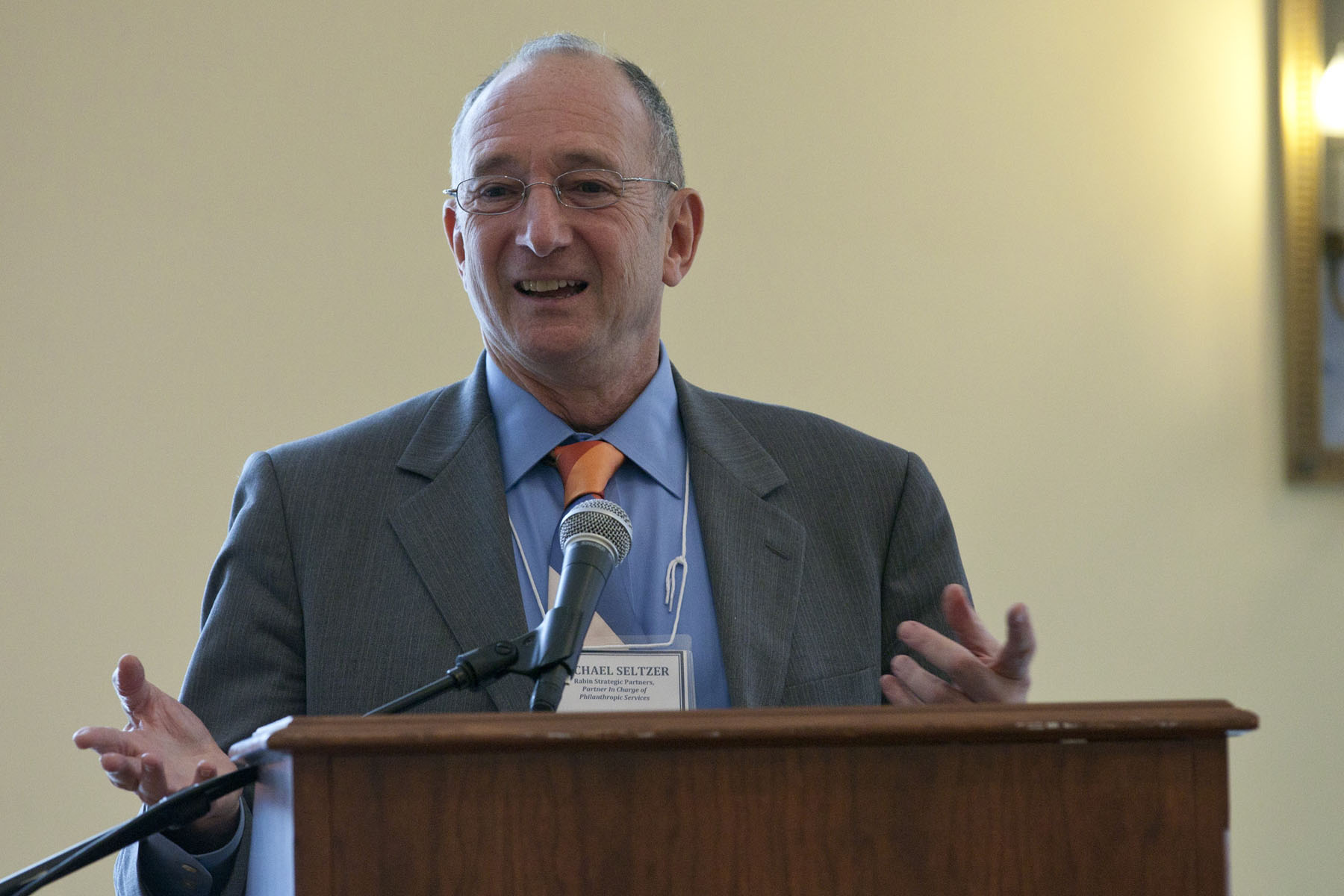September 17, 2010 — One of the world's prominent philanthropists opened the University of Virginia's symposium on giving with a question: "Are we witnessing a resurgence of philanthropy?"
Lincoln Chen, president of the China Medical Board of New York and a former executive vice president of the Rockefeller Foundation, posed the query Tuesday evening at the start of the three-day symposium, which focused on the role of philanthropy in the United States and the world and was hosted by the Center for International Studies.
"I think there is a promise of a second golden era, but it is certainly not at all assured," Chen said.
The symposium, "Civil Society, Philanthropy and Corporate Social Responsibility: Promoting Development and Building the Common Good," brought several world leaders on philanthropy to the Grounds.
One hundred years ago, Chen said, "the Rockefellers and the Carnegies decided they wanted to go to the root cause of social problems, and they did strategic investments and they used the corporate form to create what we now know as modern philanthropy."
"Some of our landmark American institutions are products of that era: University of Chicago, Rockefeller University, the discovery of the yellow fever vaccine that opened up the Suez Canal," he said.
Conditions today are right for a second golden era, he said, "with new technologies and markets, new institutions, and we certainly have generated the new wealth, despite the stock market crashes, and there is a spreading of philanthropy around the world.
"And of course you know that Bill Gates and Warren Buffet have these meetings with wealthy Americans to pledge 50 percent of their holdings" to charity. Thus far, more than 40 people have accepted the challenge, and Gates and Buffet are in China to meet with billionaires in that country.
On Wednesday, symposium attendees learned that philanthropy is not restricted to the wealthy, or even to people with money. Michael Seltzer of Rabin Strategic Partners told students, faculty and guests that he believes all people have something to offer.
"Philanthropy is not just financial," he said. "Each individual has wealth, if we count what we give with our time, our experience, our talent."
Seltzer's presentation focused on the philanthropy of the poor. He told the stories of unsung people, including a woman named Catherine Ferguson, a former slave in lower Manhattan who used the proceeds from her bakery to found New York's first Sunday school.
"She raised 48 children herself, never married, and is the unsung philanthropist in New York's history," he said.
Lincoln Chen, president of the China Medical Board of New York and a former executive vice president of the Rockefeller Foundation, posed the query Tuesday evening at the start of the three-day symposium, which focused on the role of philanthropy in the United States and the world and was hosted by the Center for International Studies.
"I think there is a promise of a second golden era, but it is certainly not at all assured," Chen said.
The symposium, "Civil Society, Philanthropy and Corporate Social Responsibility: Promoting Development and Building the Common Good," brought several world leaders on philanthropy to the Grounds.
One hundred years ago, Chen said, "the Rockefellers and the Carnegies decided they wanted to go to the root cause of social problems, and they did strategic investments and they used the corporate form to create what we now know as modern philanthropy."
"Some of our landmark American institutions are products of that era: University of Chicago, Rockefeller University, the discovery of the yellow fever vaccine that opened up the Suez Canal," he said.
Conditions today are right for a second golden era, he said, "with new technologies and markets, new institutions, and we certainly have generated the new wealth, despite the stock market crashes, and there is a spreading of philanthropy around the world.
"And of course you know that Bill Gates and Warren Buffet have these meetings with wealthy Americans to pledge 50 percent of their holdings" to charity. Thus far, more than 40 people have accepted the challenge, and Gates and Buffet are in China to meet with billionaires in that country.
On Wednesday, symposium attendees learned that philanthropy is not restricted to the wealthy, or even to people with money. Michael Seltzer of Rabin Strategic Partners told students, faculty and guests that he believes all people have something to offer.
"Philanthropy is not just financial," he said. "Each individual has wealth, if we count what we give with our time, our experience, our talent."
Seltzer's presentation focused on the philanthropy of the poor. He told the stories of unsung people, including a woman named Catherine Ferguson, a former slave in lower Manhattan who used the proceeds from her bakery to found New York's first Sunday school.
"She raised 48 children herself, never married, and is the unsung philanthropist in New York's history," he said.
— By Jane Kelly
Media Contact
Article Information
September 17, 2010
/content/expert-asks-philanthropy-entering-second-golden-era

